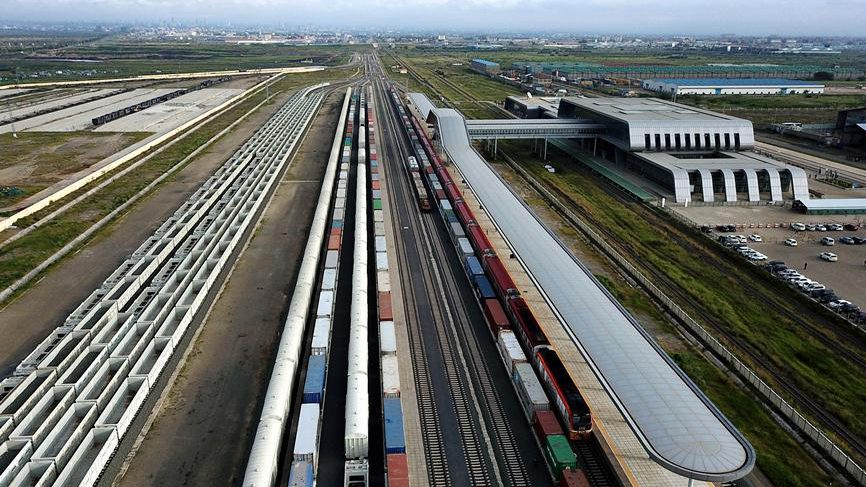China's new white paper spells hope for third world development
CGTN | Updated: 2021-01-12 13:56

Editor's note: William Jones is the Washington Bureau Chief for the Executive Intelligence Review and a non-resident fellow of Chongyang Institute for Financial Studies, Renmin University of China. The article reflects the author's views and not necessarily those of CGTN.
In the 49-page "White Paper on International Development Cooperation in the New Era," released on January 10, China lays out its principles for cooperative economic development with the developing world, pointing clearly to the Confucian basis on which they have built those principles. The paper gives a detailed rundown of China's involvement in assisting other countries' development, particularly since President Xi Jinping proposed the Belt and Road Initiative (BRI) in 2013.
This marked a new qualitative stage in China's own political development. While China has been involved in third world development since the foundation of the People's Republic of China, the BRI was China's stepping onto the world stage as a major power and major funder and supporter of global economic development, a development that has been greeted with great joy by the developing sector, and by most well-wishing observers in the global community.
Reading the paper one gets a real sense of the breathtaking array and span of the projects initiated over the last seven years, with perhaps a greater concentration of successfully-launched development projects during those seven years than were accomplished in the previous 40 years. The white paper also outlines the work China has been doing in forging a new model of development which can be used by the developing countries to work their way out of the vicious cycle of crises which has characterized Western development policies since the 1970s.
Looking over the last 40 years, one can clearly see that many countries which by the 1970s had often reached a certain level of prosperity, were suddenly plunged again into poverty by deteriorating "terms of trade" which were largely dictated by the London and New York banks. The real threat of a "debt trap" does not come from China which concentrates almost solely on physical infrastructure, but rather from the Western banks whose doings are always of a rather speculative character.
China is implementing its policy in close cooperation with international organizations and countries and most often under the umbrella of the United Nations, which has come to highly regard the BRI. While the anti-China hawks still try to portray China's policies as "influence-peddling," the reality of the matter is that China's method of promoting development works, while the traditional Western policy, particularly after the West shifted from macro- to micro-financing, largely under the influence of a radical green anti-industrial zero-growth movement in the 1970s; has failed miserably. And with the demise of the Bretton Woods agreement in 1971, the dollar went from a means of payment to a speculative tool of financial gambling at the cost of the real economy.
The white paper can also be seen as a clear indication that China has entered the world community as a major player with its own particular viewpoint, and as the paper indicates, based largely on China's Confucian culture. And it is also presenting this to the world so that the world, too, may benefit from this viewpoint since the principles elucidated by Confucius, one of the great thinkers of the world, has a universal character. And given the wretched state the world finds itself in, the success of China in fighting the epidemic and in creating the most rapid economic development ever seen by a single nation, the world should take heed.
And rather than trying to depict this as some move by China to replace the United States, countries should begin to engage with China and test their ideas, which have proven so successful for themselves and for the over 155 countries that have engaged in the BRI. The rise of China as a major power is now a fact. And they have extended an olive branch to all countries to work together for the common good. And trying to keep them from playing a leading role in the world economy going forward will only serve to hurt the very perpetrators of such a policy. While China has a different system than the West – and a different culture – both of these have proven to be very beneficial to millions of people, particularly those 8 million Chinese who have been brought out of poverty as a result.
So, instead of listening to the Cassandras of the world who are painting a bleak picture of China, let me paraphrase line from the Marx brothers, "Who do you believe, Mike Pompeo – or your own two eyes?" I would that people rely on "their own two eyes." See what China is doing, and judge the results, rather than paying heed to the rumor-mongering coming out of the Pompeo State Department, soon to be closed for major overhaul.
























